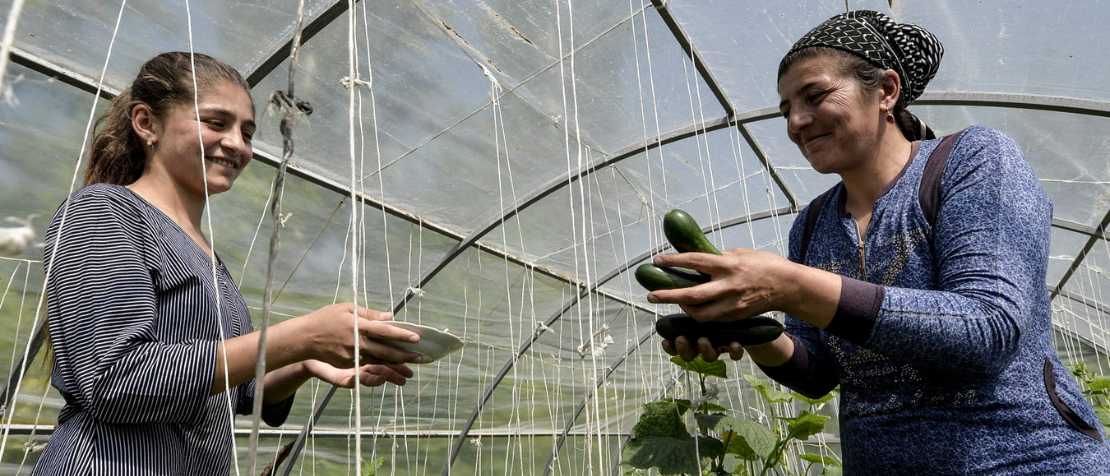World Food Safety Day events in Kyrgyzstan promote food standards

©FAO/Vyacheslav Oseledko
When you eat, are you sure your food is safe? Most likely, the answer will not be categorically affirmative. Foodborne diseases affect 1 in 10 people worldwide each year. To change this situation, many people work every day to ensure that safety requirements are met in the food production process. Food standards help us to ensure what we eat is safe.
The United Nations General Assembly established 7 June as World Food Safety Day in 2018 to raise awareness on the importance of food safety. The Food and Agriculture Organization of the United Nations (FAO) and the World Health Organization (WHO) jointly facilitate the observance of World Food Safety Day in collaboration with Member States and other partners. This year’s theme is “Food standards save lives”.
On the eve of the World Food Safety Day, an international seminar was held in the capital of Kyrgyzstan, Bishkek, to highlight the role of established food safety practices and standards, which ensure food safety and quality. The meeting was initiated by FAO and the Standardization and Metrology Centre of the Ministry of Economy and Commerce of the Kyrgyz Republic.
“The safety of food products is the task facing all those involved in the food chain from the creation of food products to the sale of finished products to the consumer,” noted Kuvatbek Bapaev, FAO Senior Policy Advisor in his opening remarks. “Producers, end sellers, and their intermediaries are the links in the chain. In practice, there are many enterprises of all sizes: companies and farms, carriers, warehouses, catering, and retail enterprises. A well-designed food safety system avoids the loss of product quality in each of these enterprises and lowers the cost of marriage or write-off, not to mention the risk that stale products pose to citizens' health.”
The main topic for discussion at the seminar was food safety in the horticultural industry of Kyrgyzstan. Vegetables and fruits are an important component of our diet and a wonderful source of fibre, vitamins, and minerals but they may be contaminated by harmful chemicals, such as agrochemicals, natural toxins, heavy metals, or micro-organisms that can cause various diseases. The identification of chemicals or micro-organisms in vegetables and fruits can mean those products cannot be traded, and, as a consequence, cause economic losses and food loss and waste.
Between 2020 and 2022, about 15 percent of all food safety incidents of international concern involving recall were vegetable, fruits, and beans. That is why adherence to norms and good agricultural practices is key to preventing food-borne diseases and enhancing food security and the economy. The growing demand for food as the global population expands, as well as climate change are further challenges that place additional responsibility on food producers and food workers to ensure food safety.
“Food security is inseparable from food safety,” noted Gokce Akbalik, FAO Food Safety Expert. “The availability of safe food contributes to the development of the national economy, trade and tourism, promotes food and nutrition security and is one of the factors of sustainable development.”
As was noted at the meeting, food safety in the horticultural sector can be ensured by following simple recommendations. Producers should, among others, use clean water to prevent contamination during and from fertilization, combat pests and diseases of plants in a sustainable manner (including integrated plant protection methods), prevent livestock from entering the vicinity of fruit and vegetable farms, and use clean and hygienic equipment on the farm.
It was also recommended for competent authorities to provide producers with information on food safety management (including good agricultural practices and good hygiene practices), create an enabling environment for small-scale farmers for sustainable production, promote compliance with the norms and rules of the Codex Alimentarius Commission, as well as conduct regular farm inspections.
Food safety is everyone’s business.
This was also mentioned at the guest lecture on food safety, which FAO experts gave to students at the Musa Ryskulbekov Kyrgyz Economic University. The speakers presented the HACCP system and its principles, risk identification and monitoring, and answered questions from students and faculty.
7 June 2023, Kyrgyzstan, Bishkek
